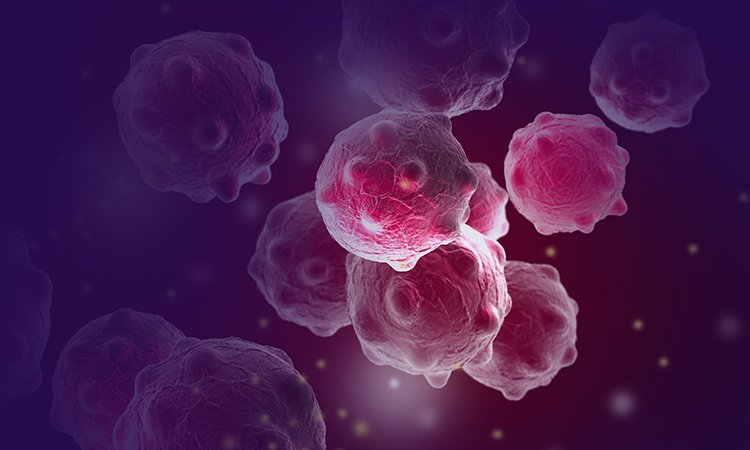SRC-3: CoRegen’s revolutionary approach to cancer
Posted: 6 October 2023 | David Lonard (CoRegen) | No comments yet
Drug Target Review’s Taylor Mixides exclusively interviews David Lonard, PhD, Chief Scientific Officer at CoRegen and Associate Professor at Baylor University, to uncover the mechanisms of SRC-3 and why it’s key to targeting cancer – and only cancer.


Dr Lonard is at the forefront of scientific innovation, spearheading CoRegen’s pioneering approach to immunotherapy by harnessing the power of Steroid Receptor Coactivator-3 (SRC-3). This master regulator of the regulatory T cell (Treg) genome has opened new horizons in the fight against cancer, offering a precise and tailored solution to modulate the immune system’s response. This interview explores how CoRegen’s innovative techniques are not only transforming cancer treatment but also hold promise for a wide range of medical applications, all while minimising the side effects often associated with traditional therapies.
Can you explain the role of steroid receptor coactivator-3 (SRC-3) in Tregs and how you are leveraging this discovery for immunotherapy?
At the core of CoRegen’s technology is the profound understanding of SRC-3, the master regulator of the Treg genome, first discovered in the lab of renowned molecular endocrinologist Bert O’Malley at the Baylor College of Medicine. The O’Malley lab discovered that SRC-3 plays a pivotal role in the immunosuppressive functionality of Tregs and is frequently overexpressed in the majority of human cancers. Preclinical research demonstrated that removing SRC-3 from Tregs resulted in long-lasting tumour eradication and prevented growth of new tumours. Our innovative platform taps into the relationship between SRC-3 and Tregs to pioneer a novel approach to overcome immunosuppression specifically in the tumour microenvironment (TME). This modulation allows cytotoxic immune cells to infiltrate and eliminate the tumour. The therapeutic potential here is massive, particularly for the most aggressive forms of cancers that have failed to respond to currently available immune checkpoint inhibitors and CAR T-based cell therapies, which we’re currently pursuing.
Could you explain how CoRegen engineers Tregs to target SRC-3 specifically while maintaining normal Treg functionality in the rest of the body?
Our team has created proprietary techniques to engineer Tregs that specifically remove SRC-3 that is expressed in the nucleus. This precision engineering ensures that while we inhibit the action of SRC-3 in Tregs in the context of the tumour, the normal functionality of Tregs in other physiological processes in the rest of the body remains untouched. It’s this fine-tuned approach that distinguishes our method and has the potential to redefine cancer treatment modalities without toxicity, inflammation or off-target effects.
How does CoRegen’s unique approach of working in the nucleus enable desired outcomes without the typical side effects often associated with cancer therapies?
By working directly at this level in the Treg, CoRegen can precisely manipulate its cellular activity at its source, the TME. Focusing on SRC-3 within the nucleus activates a series of changes in protein expression that have a profound impact of enhancing the immune system’s ability to engage and attack cancer cells. The engineered Tregs dominate and recruit at the TME to kill tumours without the need for lymphodepletion and without inhibiting other critical immune checkpoint activities. By doing so, we sidestep many of the common systemic toxicities traditionally associated with cancer treatments, including cytokine storms, offering a more patient-friendly therapeutic regimen.
Can you explain how your approach compares to other therapies targeting Tregs, like checkpoint inhibitors? What are the key benefits of your approach?
While both checkpoint inhibitors and our SRC-3 targeted approach aim to modulate the immune system’s response against cancer, our method offers a more tailored solution. Checkpoint inhibitors and other therapies work via the cell surface and its receptors to modulate T-cell antitumor activity. In contrast, our approach works in the nucleus of Tregs, transforming its function only within tumours to begin attacking cancer cells and permitting other immune cells to attack. This includes producing large amounts of the IFNγ cytokine within the TME to allow a large influx of anti-tumour effector cells (CD8/CD4 and NK cells) into tumours and producing significantly more perforin and granzymes to destroy cancer cells.
What are other ways CoRegen is targeting SRCs?
While our focus is on SRC-3 and cancer, it’s just the tip of the iceberg, as the same SRC-3 mechanism can improve non-malignant disease too; including SRC stimulators for myocardial infarction, heart failure and stroke.
Could you provide more information about CoRegen’s SRC small-molecule inhibitor (SMI) and SRC small-molecule enhancer (SMs) within your portfolio? For what indications can this approach be used?
We have a strong IP on SRC-3 covering any method of cell editing, including Treg engineering, molecular inhibitor and small-molecule enhancer patents. Our SMI and SMS programmes offer diverse therapeutic possibilities and modalities that are not only applicable in oncology but may also extend to other high-intensity chronic illnesses. Preclinical research has shown SRC-3 stimulators can dramatically reverse damage and improve function after both myocardial infarction and stroke. Our main priority is to remain focused on our initial indications in glioblastoma and pancreatic cancer utilising genetically engineered Tregs; however, we anticipate uncovering a broad range of indications where SRC-3 stimulator compounds could also prove transformative.
Author Bio:


David Lonard is the Chief Scientific Officer of CoRegen, bringing to the role over three decades of expertise in the field of molecular and cellular biology. In addition to his leadership at CoRegen, he holds the position of Associate Professor of Molecular and Cellular Biology at Baylor College of Medicine. At CoRegen, Dr Lonard spearheads the advancement of the company’s groundbreaking master gene regulator platform—a transformative discovery originating from Dr Bert O’Malley’s lab at Baylor College of Medicine to treat cancer and other malignant and high intensity chronic illnesses. Prior to his current roles, David was a postdoctoral fellow in Dr O’Malley’s group, where he established that the ubiquitin-proteasome pathway is required for efficient transcription mediated through the oestrogen receptor and other nuclear receptors. Dr Lonard earned a BS and PhD from Texas A&M University.



